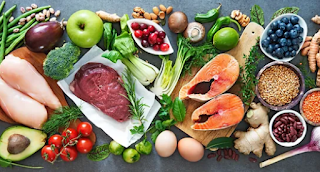Nutrition for Hair Health: How Diet and Nutrients Impact Your Tresses
When it comes to hair health, we often focus on external factors such as hair care products and styling techniques. However, what you put into your body can also play a significant role in the health of your tresses. Proper nutrition and the right nutrients are essential for maintaining healthy hair from the inside out. In this article, we will explore how diet and nutrients can impact your hair health and provide tips for incorporating hair-friendly foods into your diet.
1. Protein:
Protein is a crucial nutrient for hair health, as hair strands are made up of a protein called keratin. Including enough protein in your diet is essential to support the growth and strength of your hair. Good sources of protein for hair health include lean meats, poultry, fish, eggs, dairy products, beans, legumes, nuts, and seeds.
2. Omega-3 Fatty Acids:
Omega-3 fatty acids are healthy fats that are essential for overall health, including hair health. They are known to nourish the scalp and promote healthy hair growth. Fatty fish such as salmon, mackerel, and sardines are excellent sources of omega-3 fatty acids. Plant-based sources of omega-3s include chia seeds, flaxseeds, and walnuts.
3. Vitamins and Minerals:
Several vitamins and minerals are essential for hair health, including:
- Vitamin A: Helps produce sebum, which is a natural oil that moisturizes the scalp. Good sources of vitamin A include carrots, sweet potatoes, spinach, and kale.
- Vitamin C: Helps produce collagen, a protein that strengthens hair strands. Citrus fruits, bell peppers, strawberries, and kiwi are excellent sources of vitamin C.
- Vitamin E: An antioxidant that helps protect hair cells from damage. Good sources of vitamin E include almonds, sunflower seeds, avocados, and spinach.
- B Vitamins: B vitamins, such as biotin, niacin, and B12, are important for hair growth and strength. Whole grains, eggs, dairy products, leafy greens, and poultry are good sources of B vitamins.
- Zinc: Supports hair growth and scalp health. Zinc-rich foods include oysters, beef, poultry, beans, nuts, and seeds.
- Iron: Helps carry oxygen to the hair follicles, promoting healthy hair growth. Red meat, poultry, fish, beans, lentils, and leafy greens are good sources of iron.
4. Water:
Proper hydration is crucial for overall health, including hair health. Drinking enough water helps keep the scalp and hair follicles hydrated, promoting healthy hair growth. Aim to drink at least 8 glasses of water per day and more if you are physically active or in hot weather.
5. Limiting Processed Foods and Sugar:
A diet high in processed foods and added sugars can have a negative impact on hair health. These foods can cause inflammation in the body, disrupt hormonal balance, and lead to nutrient deficiencies, which can all affect the health of your hair. Try to limit your intake of processed foods and sugary snacks and opt for whole, nutrient-rich foods instead.
In conclusion, a balanced diet with a variety of nutrients is crucial for maintaining healthy hair. Incorporating protein, omega-3 fatty acids, vitamins, minerals, and water into your diet can promote healthy hair growth and strength. Additionally, limiting processed foods and sugar can help support overall hair health. Remember to consult with a healthcare professional or registered dietitian before making any significant changes to your diet or taking supplements to ensure it is appropriate for your individual needs. With the right nutrition, you can nourish your tresses from within and achieve luscious, vibrant hair.


Post a Comment for "Nutrition for Hair Health: How Diet and Nutrients Impact Your Tresses"